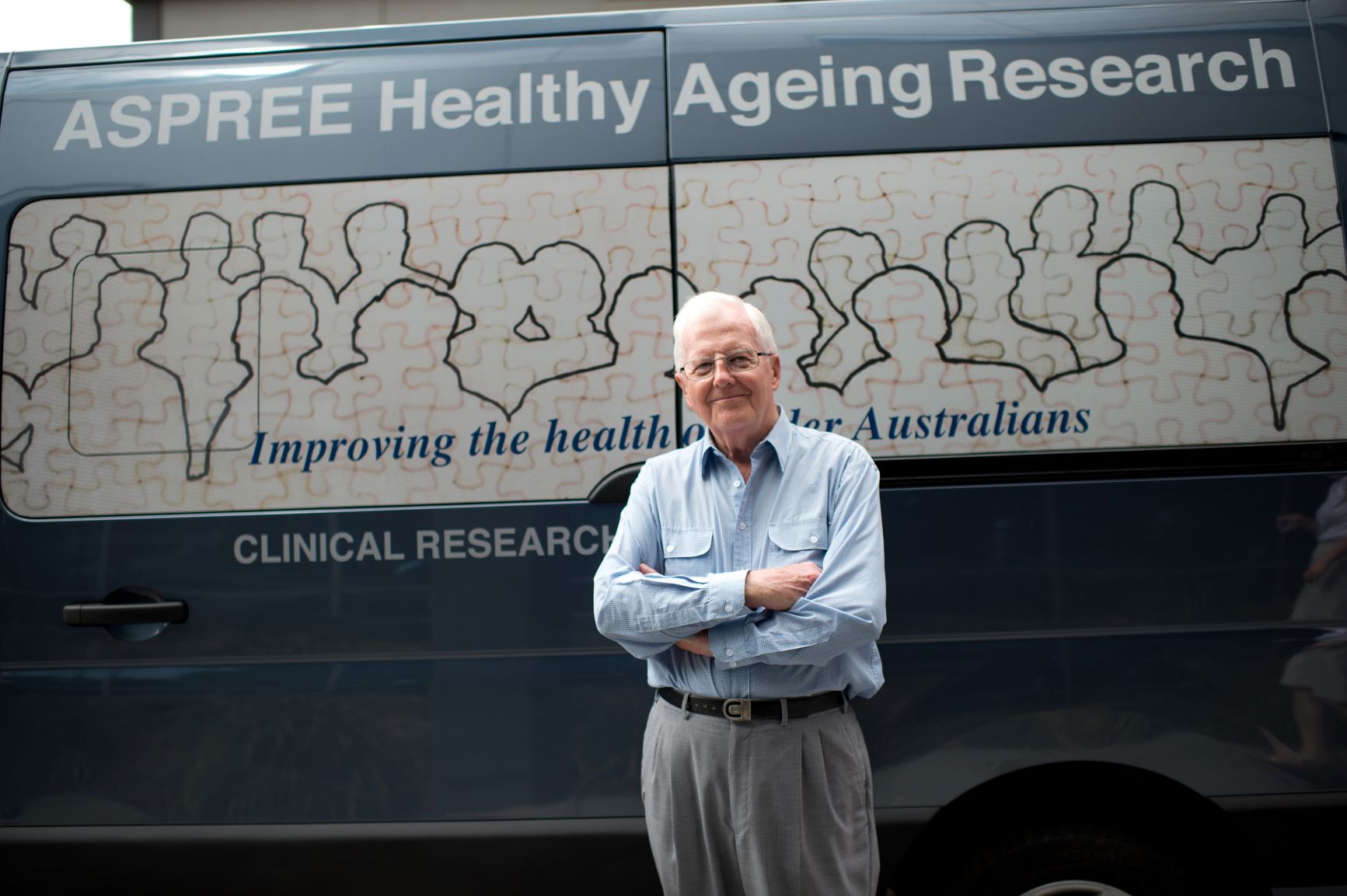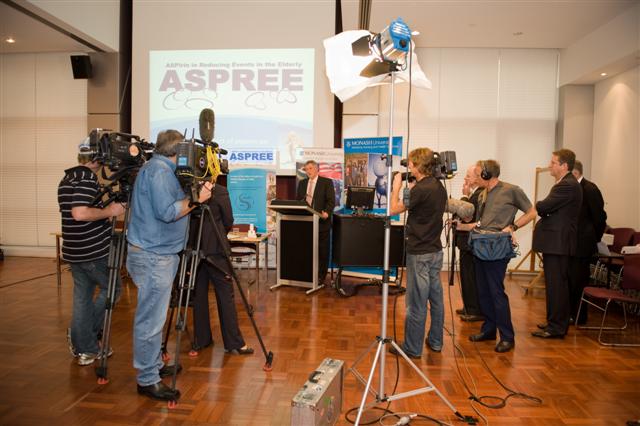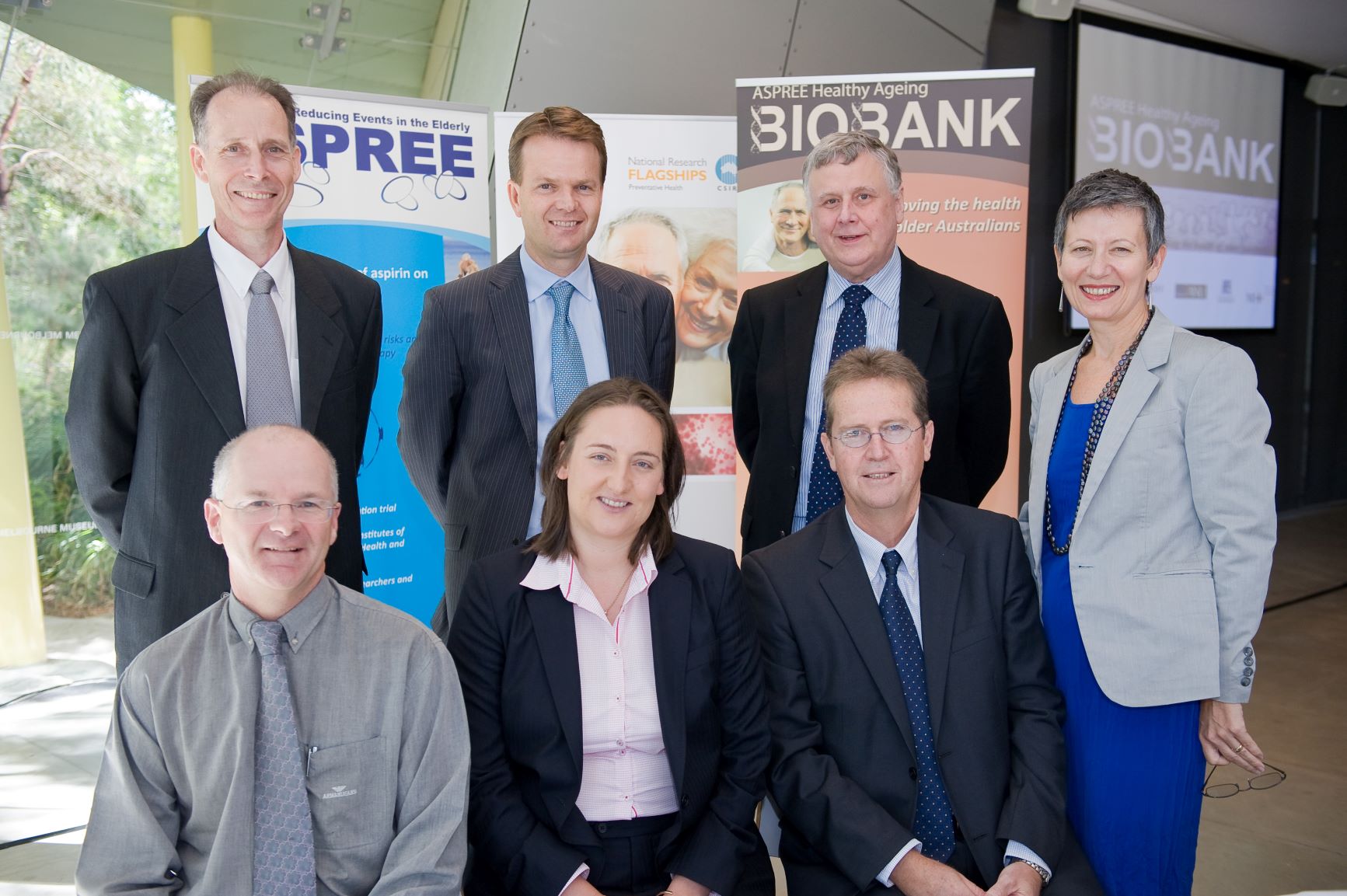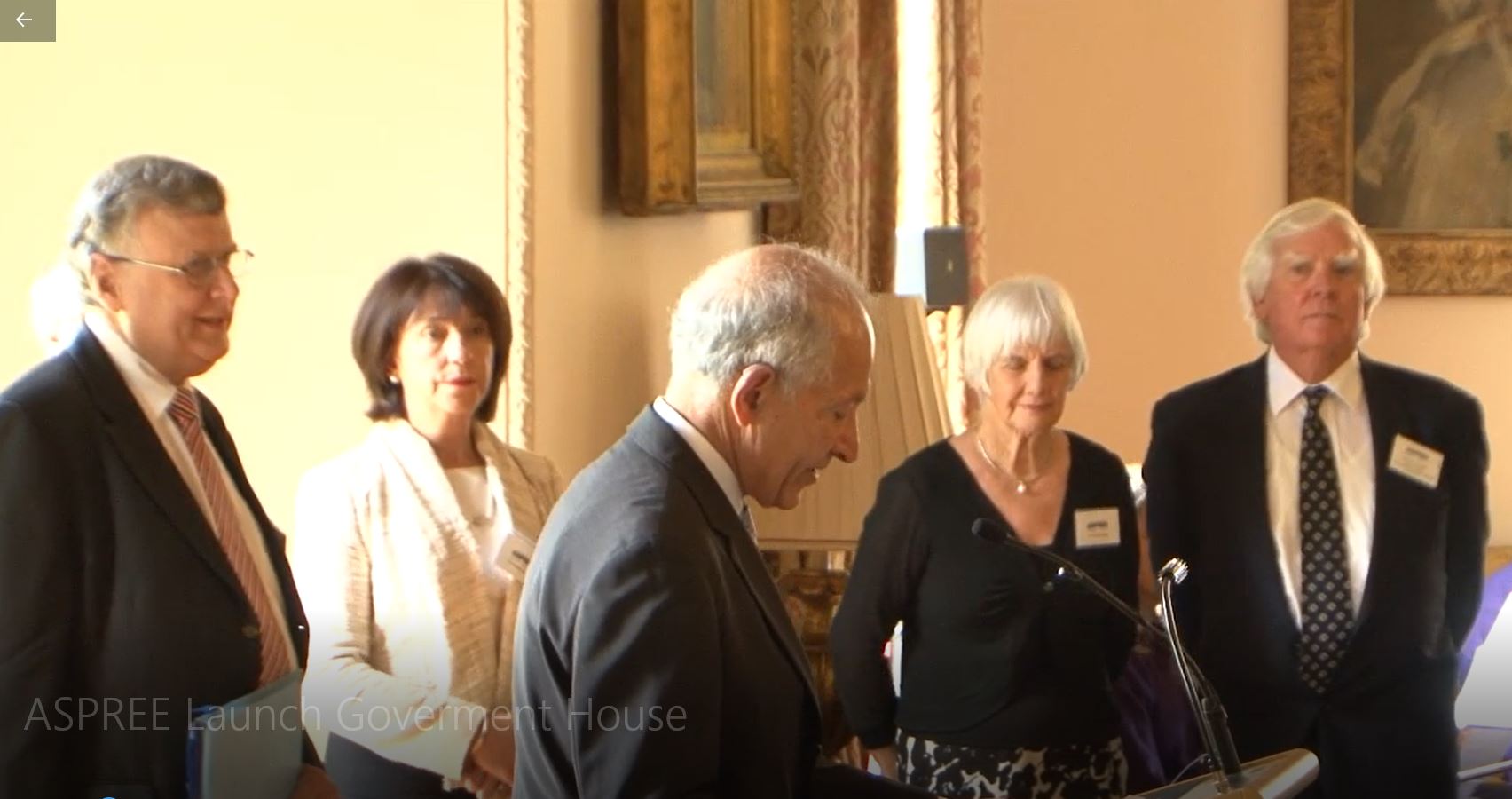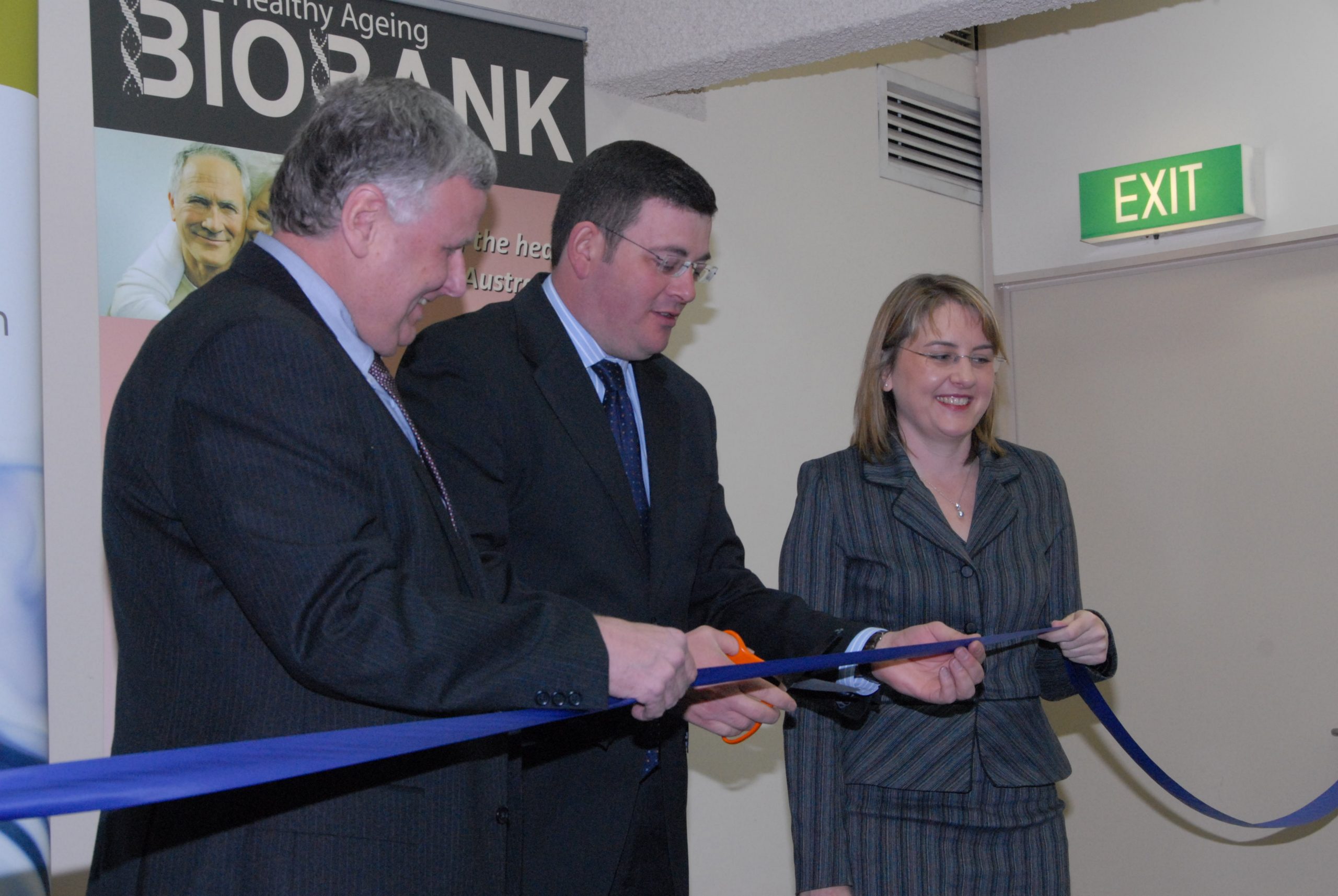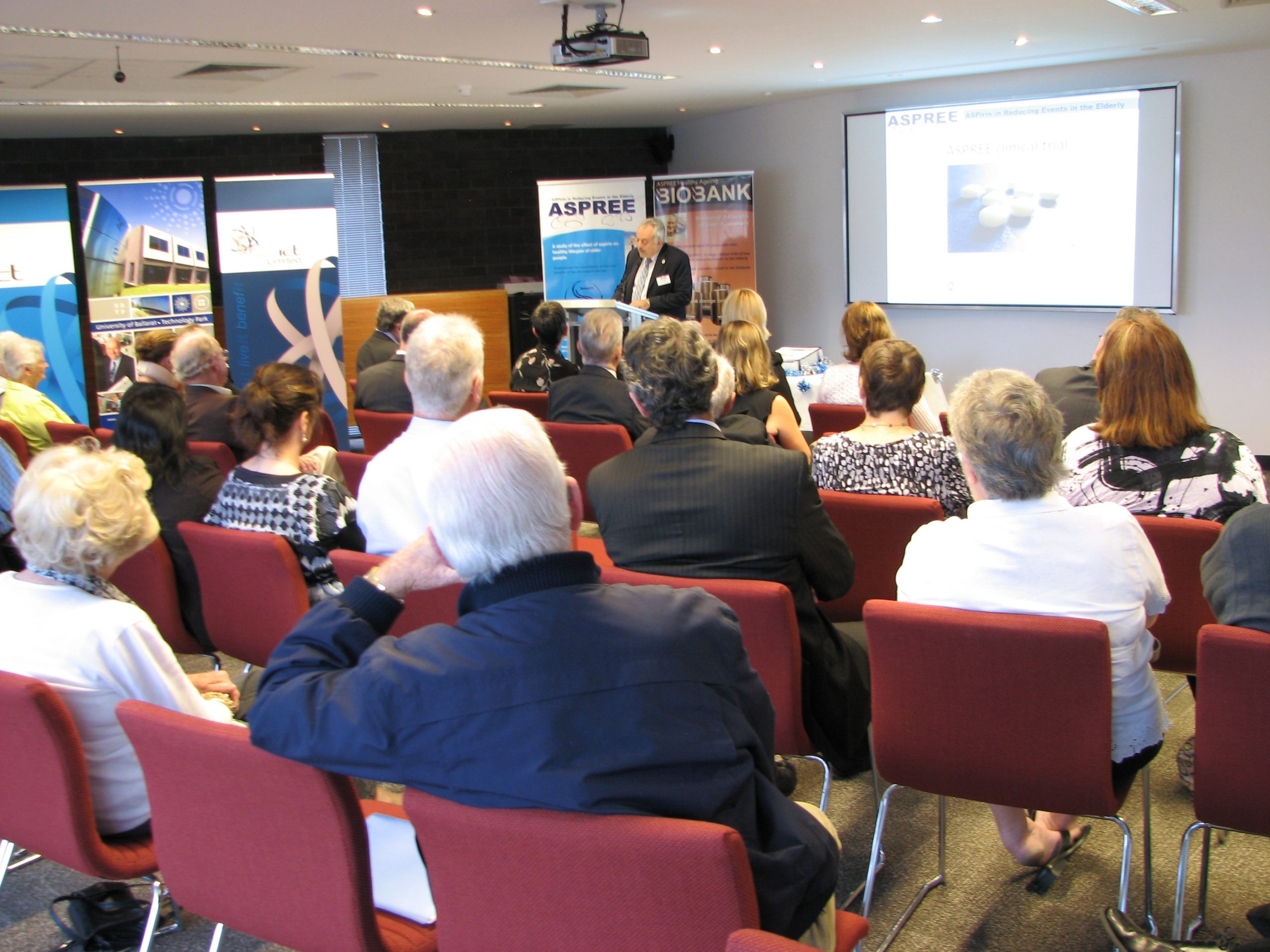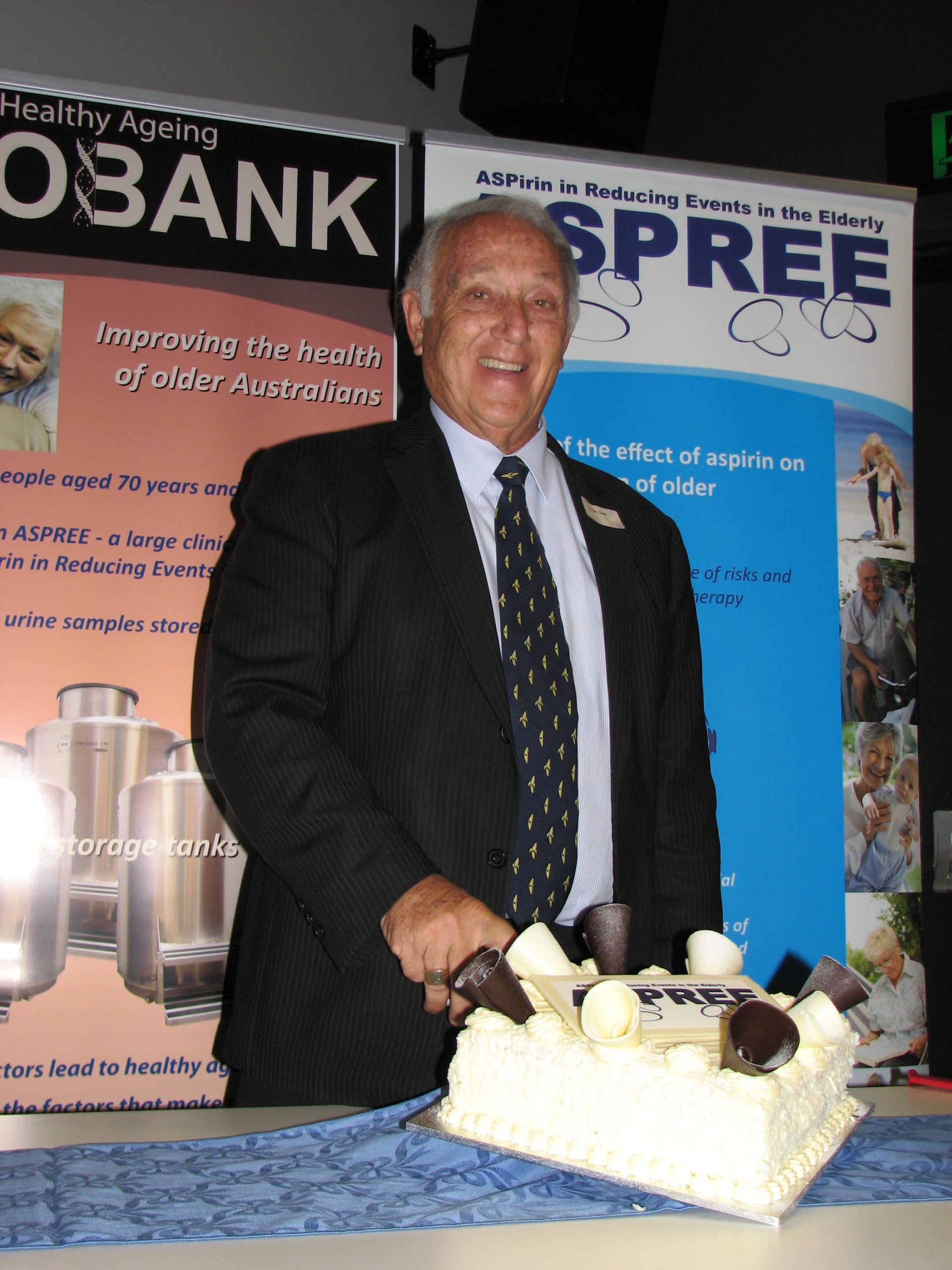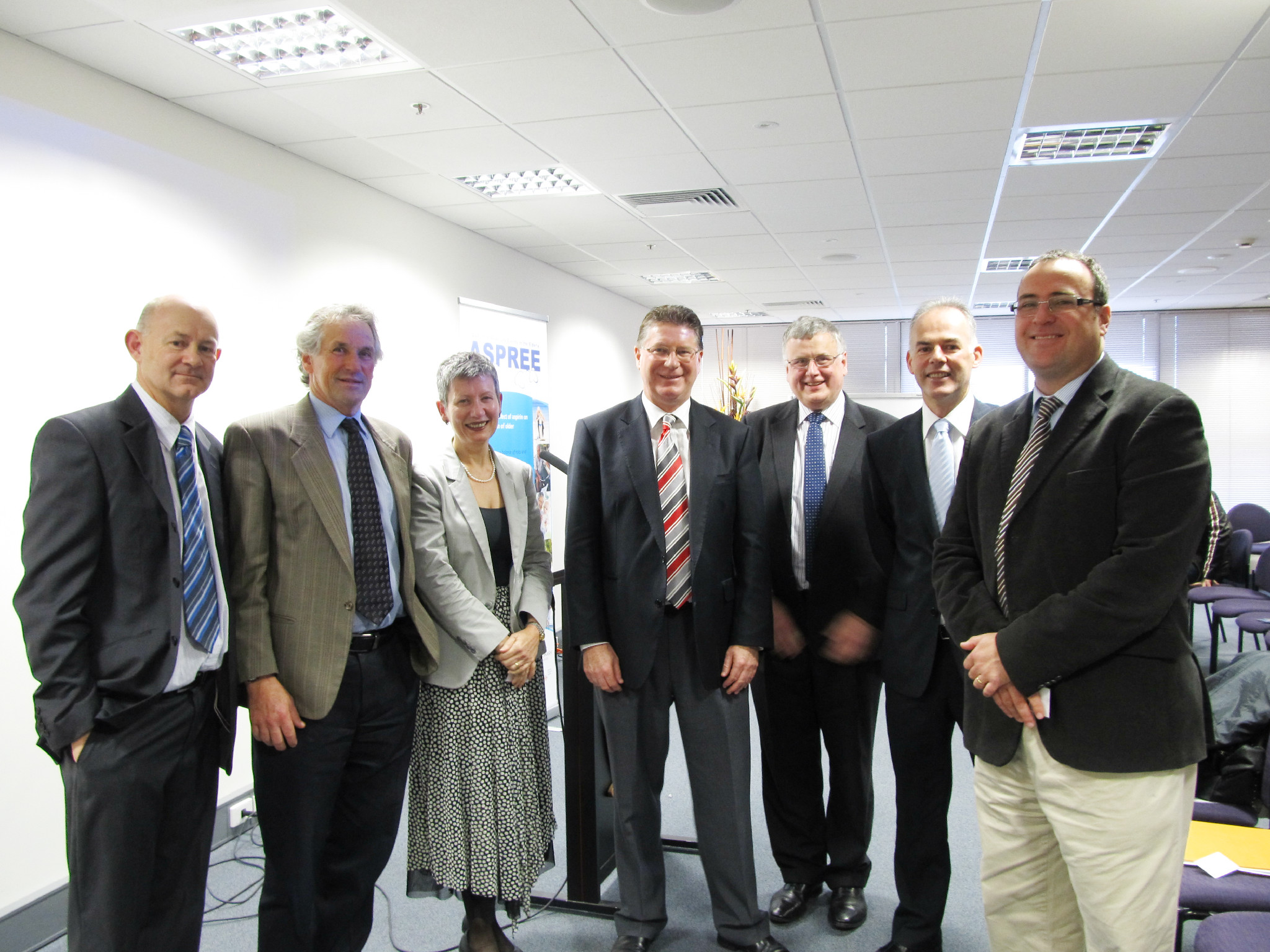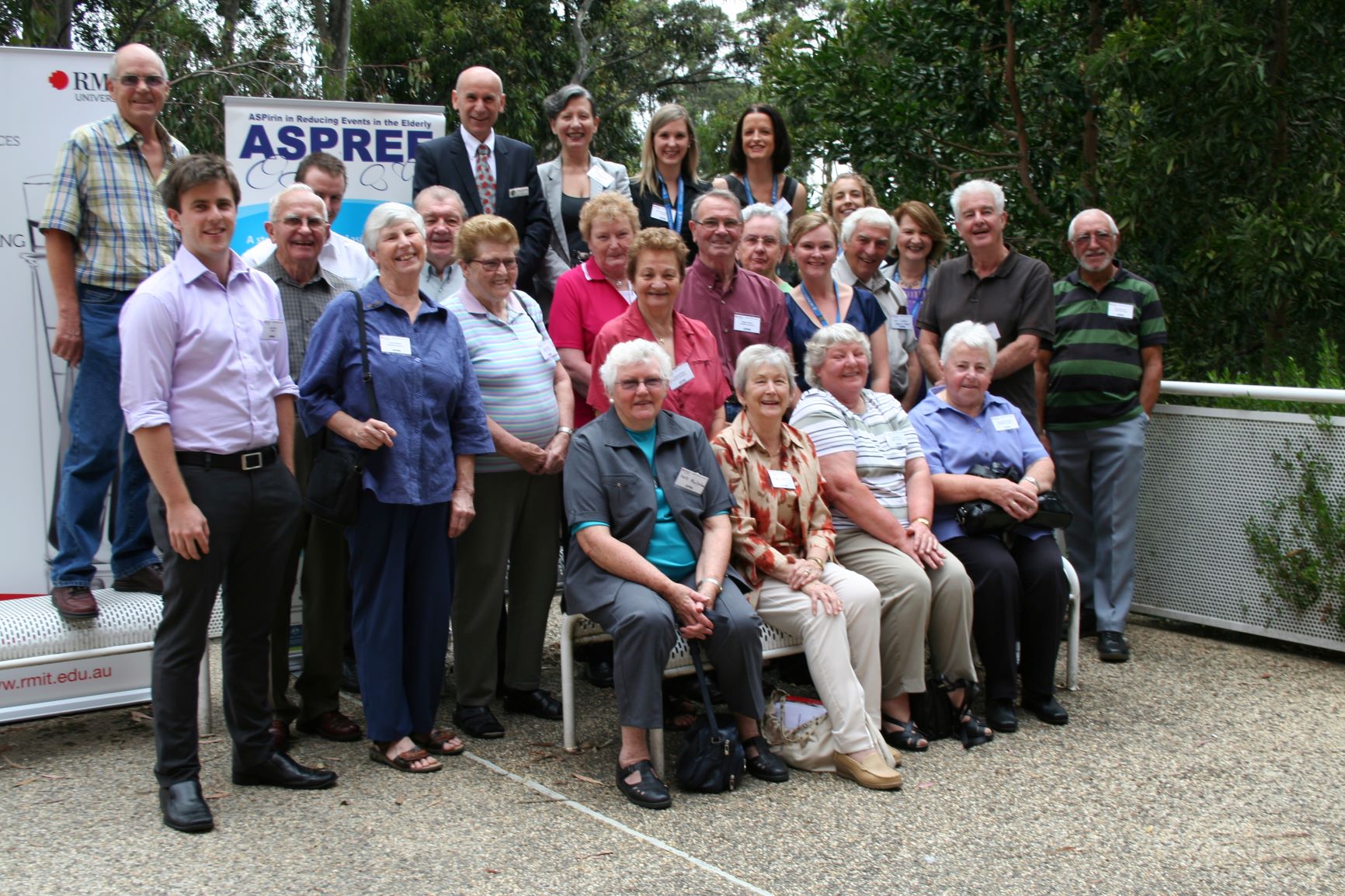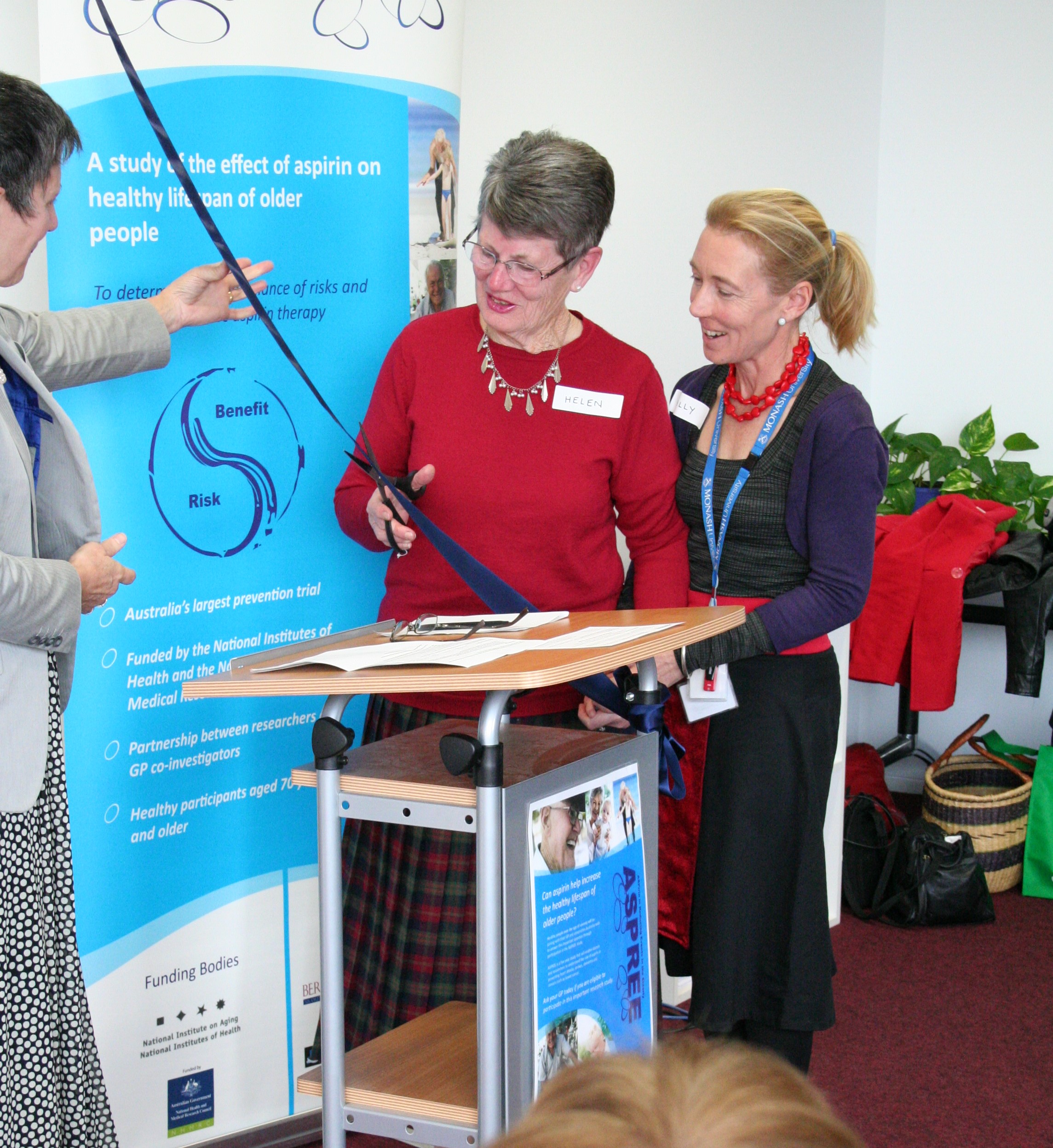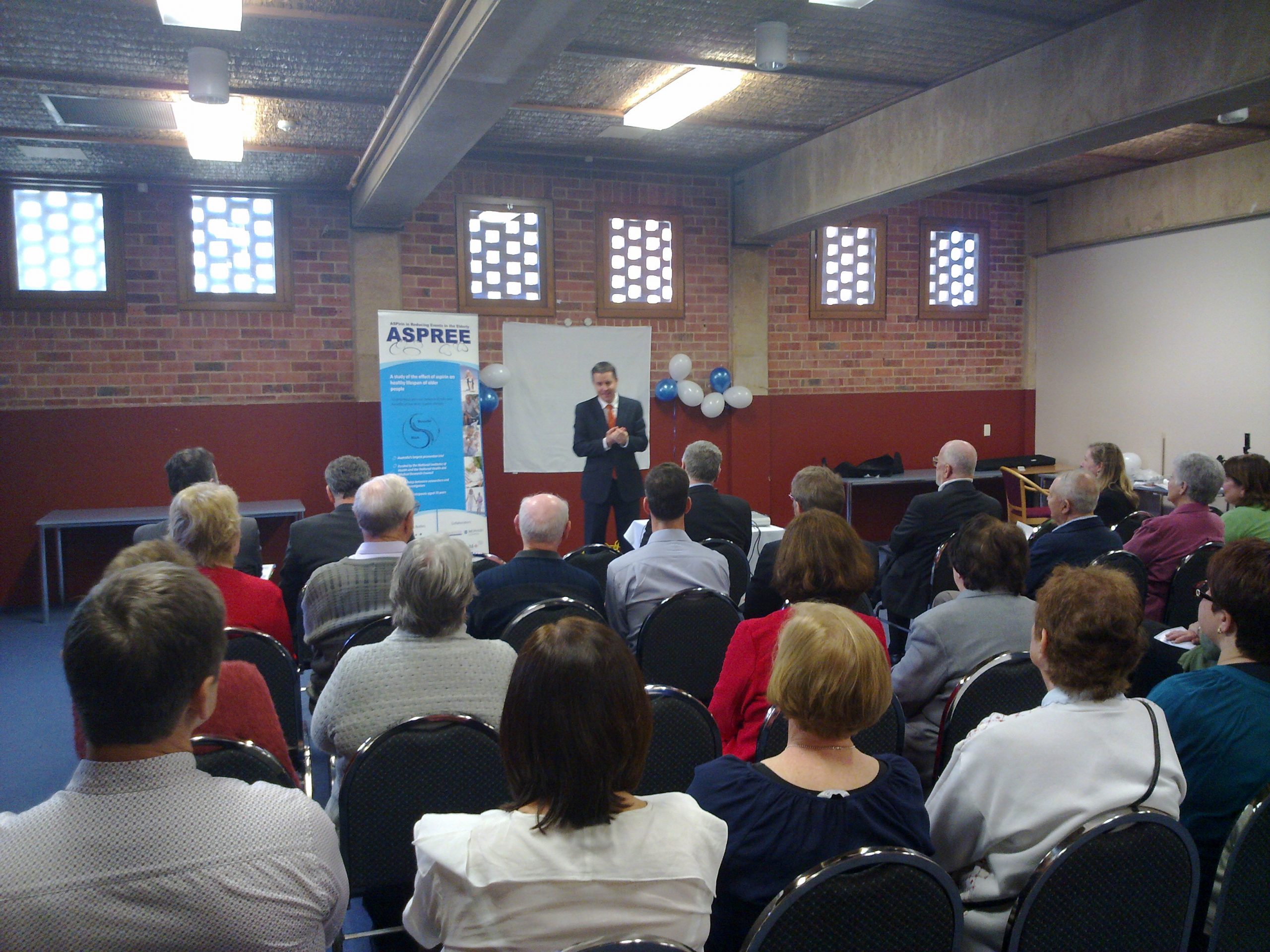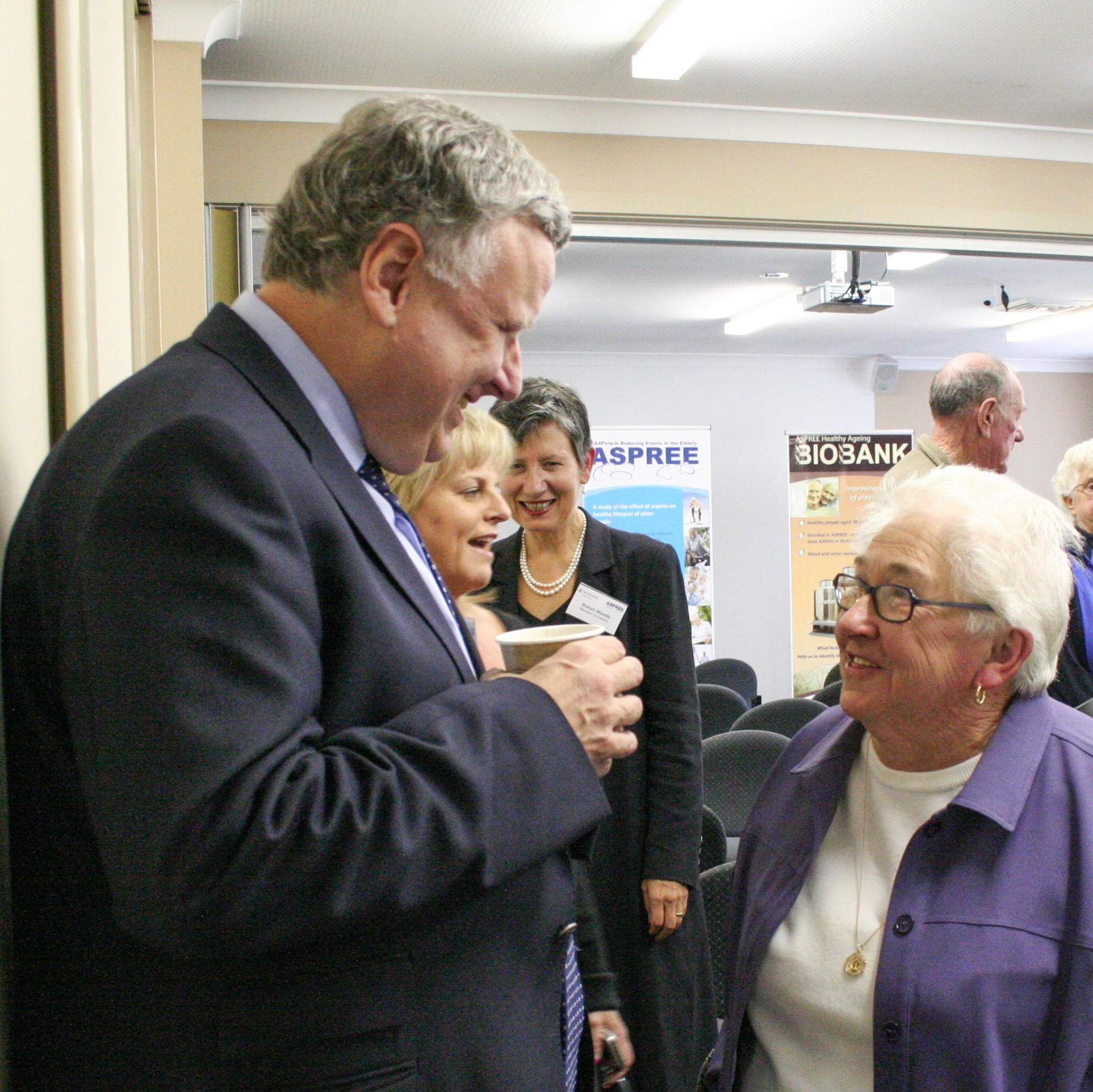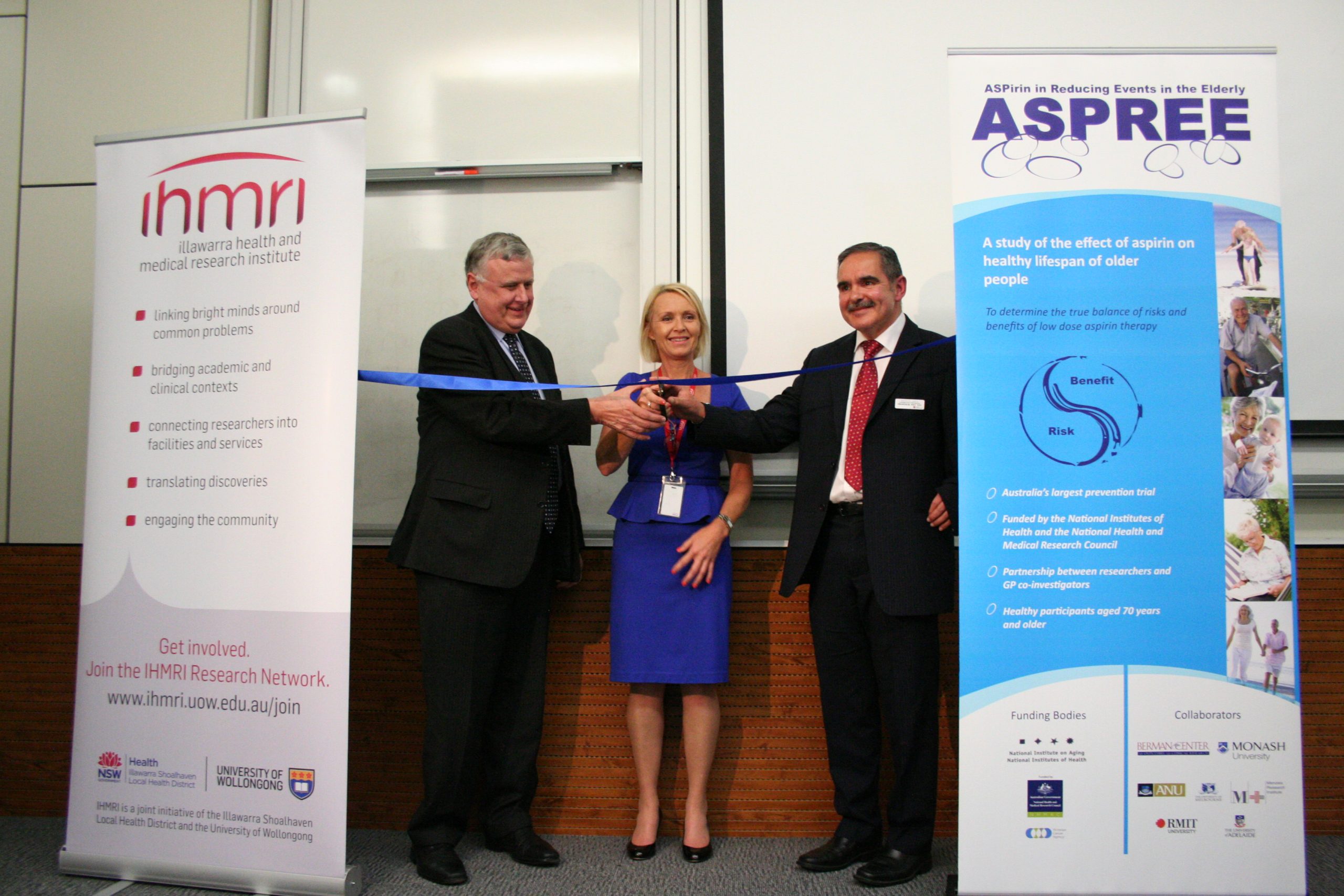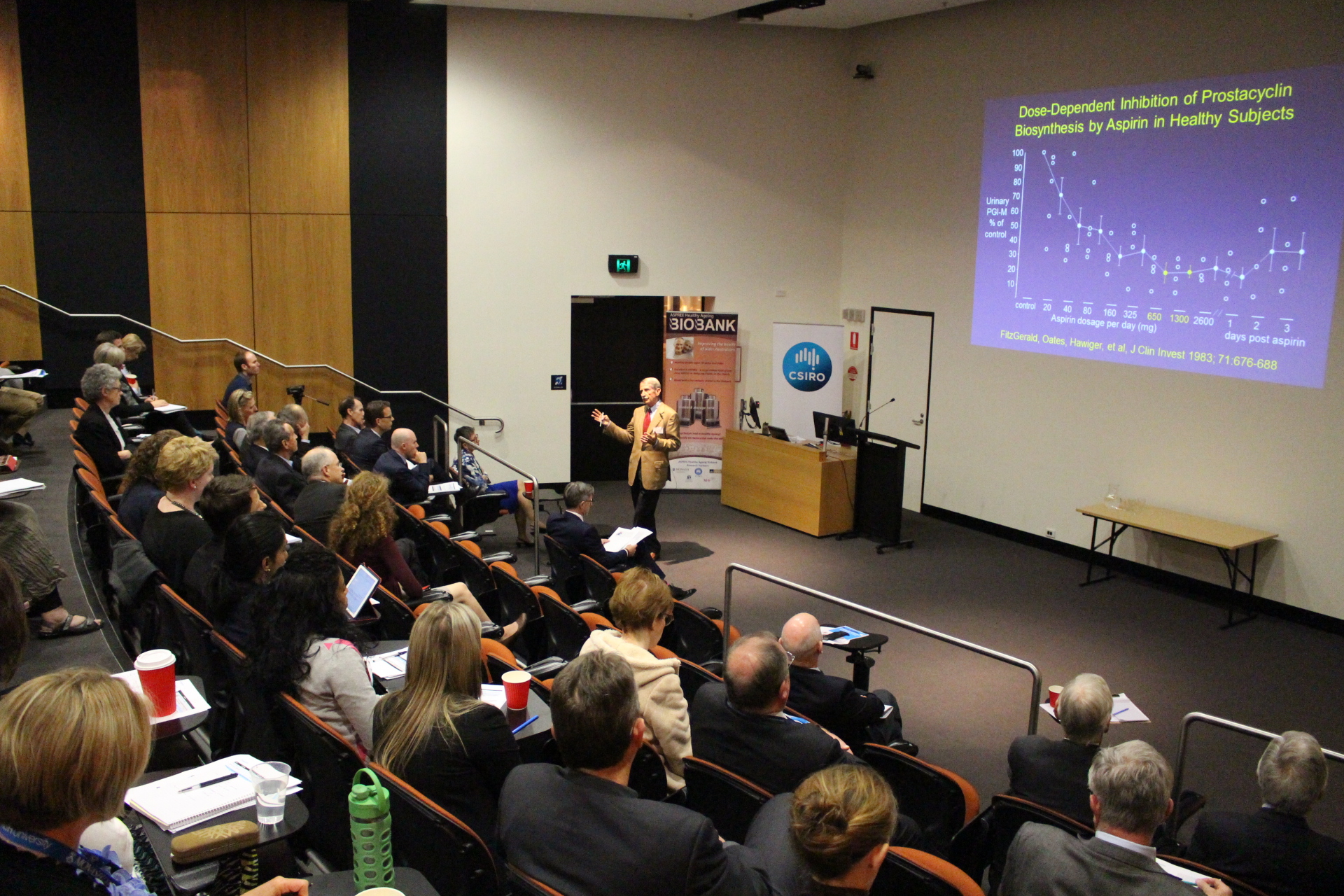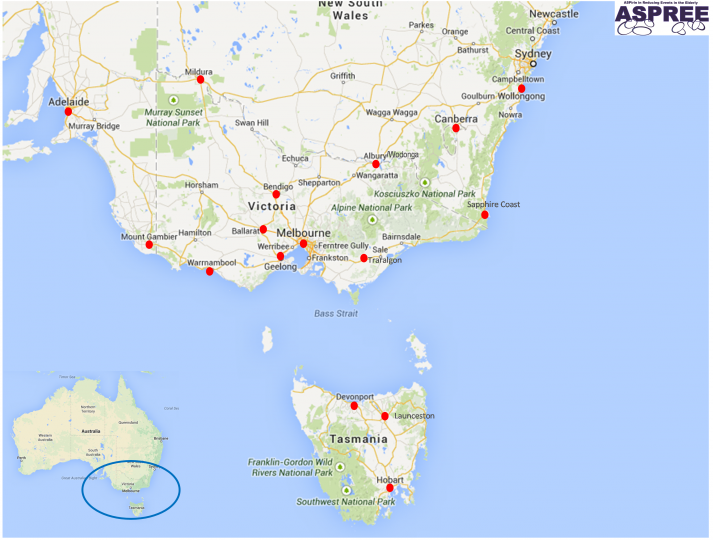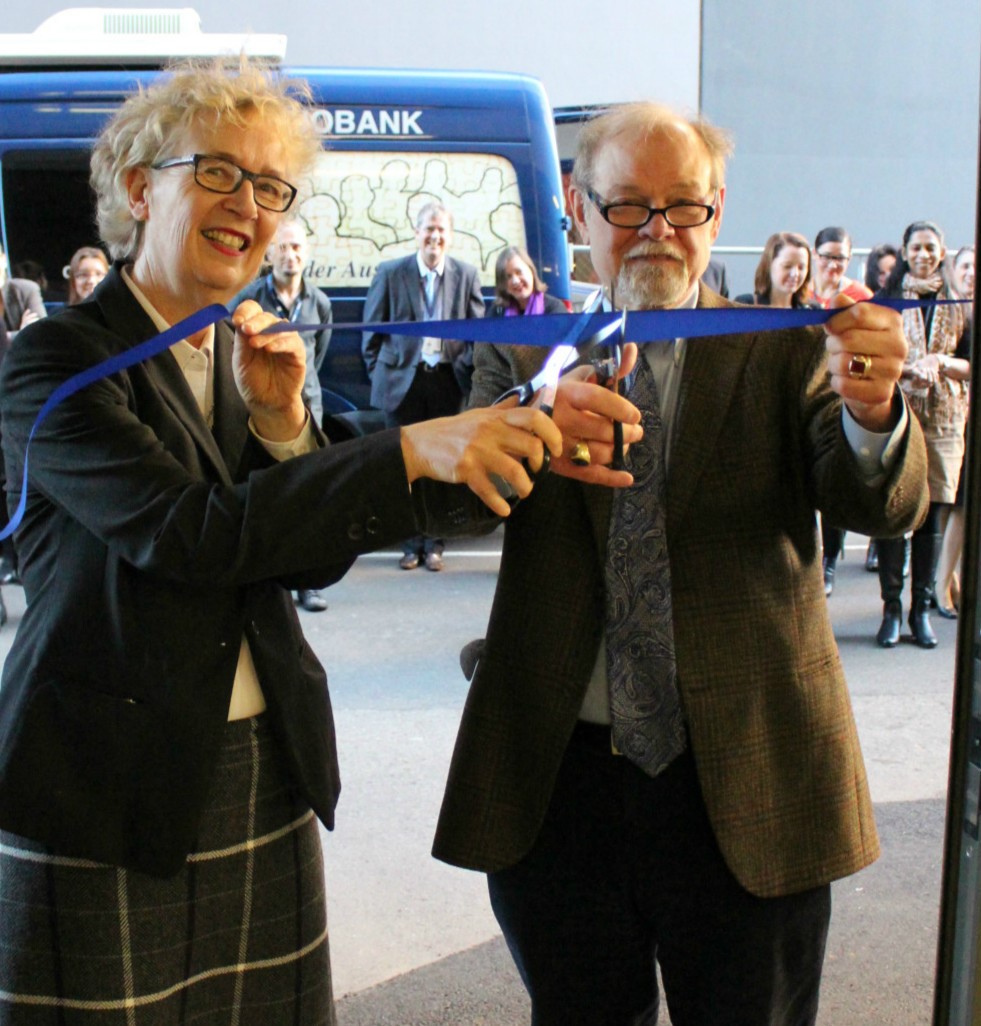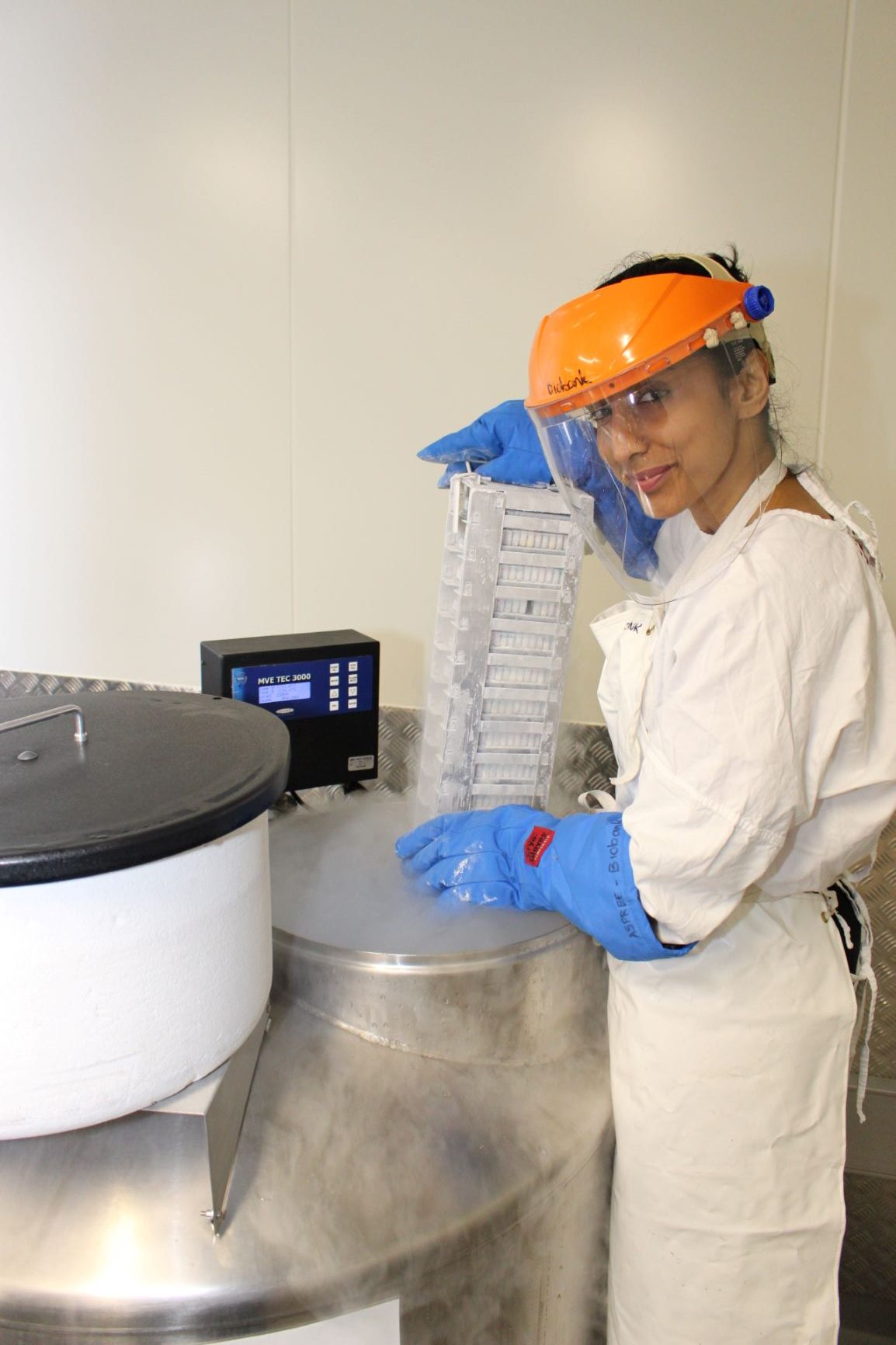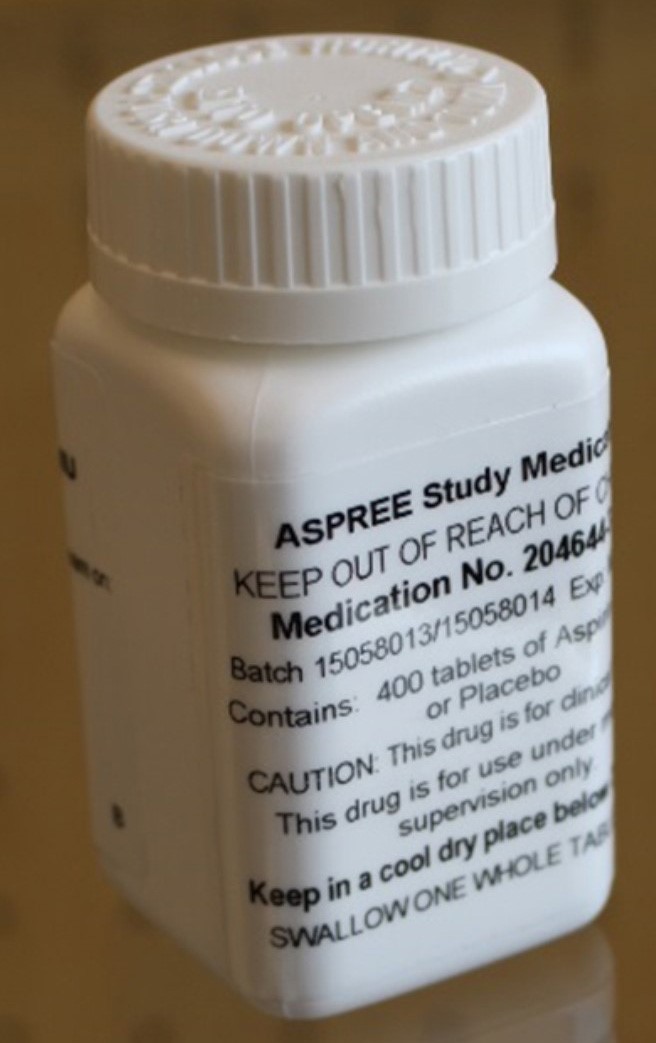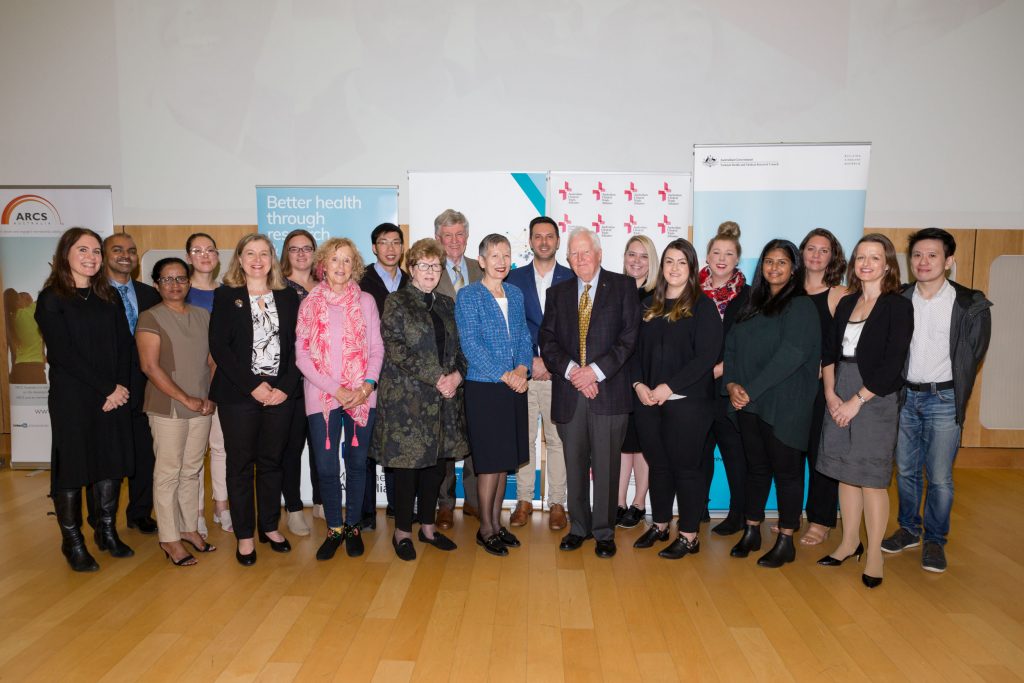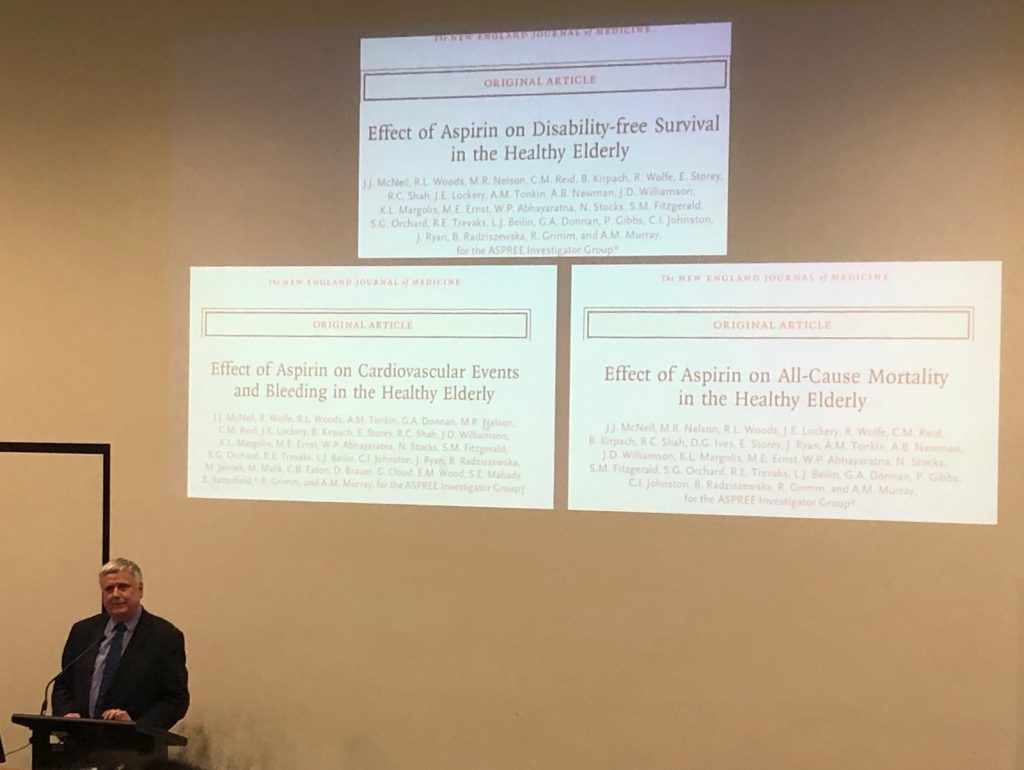THE ASPREE PROJECT
ASPirin in Reducing Events in the Elderly (ASPREE) is a landmark research project to advance better health outcomes for older adults. ASPREE is comprised of an aspirin trial and a follow up health and ageing study.
THE ASPREE Clinical Trial (completed)
The largest primary prevention aspirin trial in 19,114 healthy older adults.
This ‘gold standard’ trial – randomised, double blind, placebo-controlled trial of daily low-dose aspirin (100mg) – provided the first evidence that an aspirin a day does not prolong years of good health for ‘healthy’ older adults (those without cardiovascular disease, dementia or significant physical disability.)
ASPREE was the first preventive trial to consider the effect of aspirin on disability-free life in healthy adults, aged mostly 70+ years.
THE ASPREE-XT (eXTension) follow-up study (current)
The first follow-up study into long lasting effects of aspirin on health and other factors affecting healthy ageing.
ASPREE and the follow-up ASPREE-XT study will determine for the first time, aspirin’s short term and longer term effects on cancer, dementia and physical disability. ASPREE-XT will also investigate factors, such as those related to lifestyle, health behaviour, environment, genes and many others, that may be predictors of good health and longevity or predispose to age-related diseases.
ASPREE’S HISTORY
Page updated: 1 March 2021





